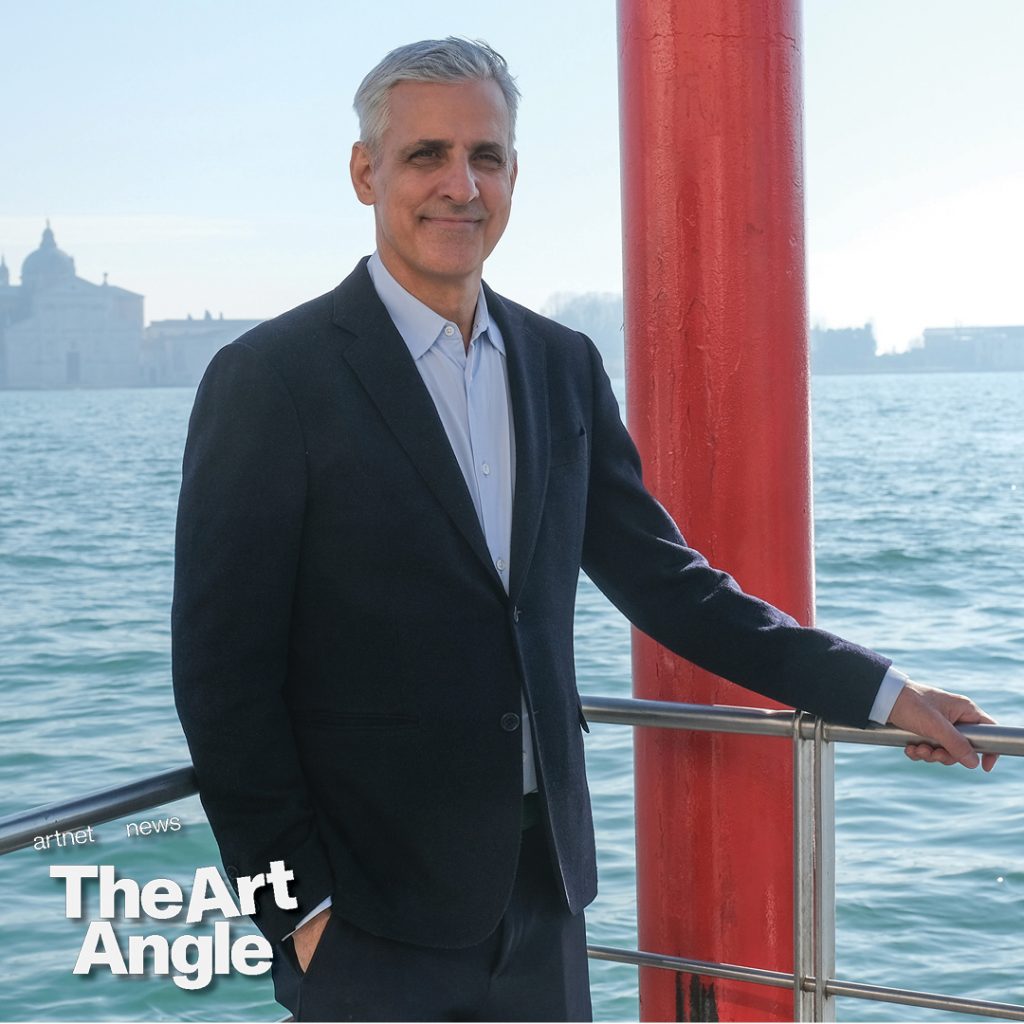The Art Angle
Why Adriano Pedrosa Sees His Venice Biennale As ‘Paying a Debt’
The curator speaks out on what to expect from 'Foreigners Everywhere.'

Welcome to the Art Angle, a podcast from Artnet News that delves into the places where the art world meets the real world, bringing each week’s biggest story down to earth. Join us every week for an in-depth look at what matters most in museums, the art market, and much more, with input from our own writers and editors, as well as artists, curators, and other top experts in the field.
Next week, the art world will descend into the Venetian Lagoon for the Venice Biennale, the most highly anticipated art event of this year. The Brazilian curator Adriano Pedrosa is at the helm of the prestigious group exhibition, which is now in its 60th edition, and his show includes more than 300 artists and collectives presented in the historic Arsenale and the Central Pavilion in the Giardini. Many of these artists, who are largely based or from the global South, are on view for the first time in these revered spaces.
There are multiple ways to look at the show and its title “Foreigners Everywhere,” which is inspired by a famous work of the same name by artist collective Claire Fontaine. It is both an acknowledgement of the artistic positions of exile of the immigrant or outsider, but also importantly asks of the audience to think about who exactly is a foreigner… and who is not. Pedrosa argues that deep down we are all foreigners, and this exhibition, which the curator describes as a “provocation,” arrives as the world is facing a multitude of emergencies centered around the very concepts of exile and belonging.
Just as everything was coming together over the last weeks ahead of the April vernissage, Artnet’s Kate Brown spoke to Pedrosa about what visitors can expect from “Foreigners Everywhere” and his overarching vision for the show. He shared his views on how one should navigate an exhibition of this scale, and discusses his background as a curator in São Paulo, which included organizing pioneering exhibitions of marginalized perspectives and histories during Jair Bolsonaro’s populist reign in Brazil. The two also speak about Pedrosa’s understanding of what it means to be a foreigner from both a political and artistic perspective.





